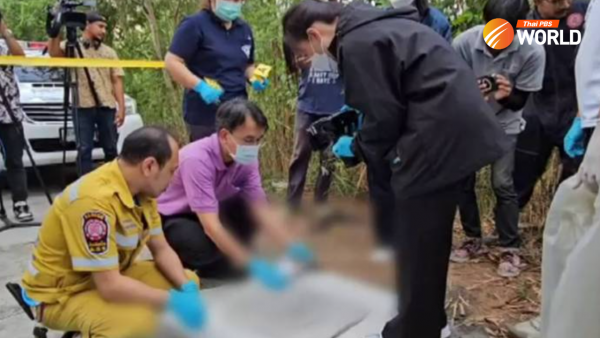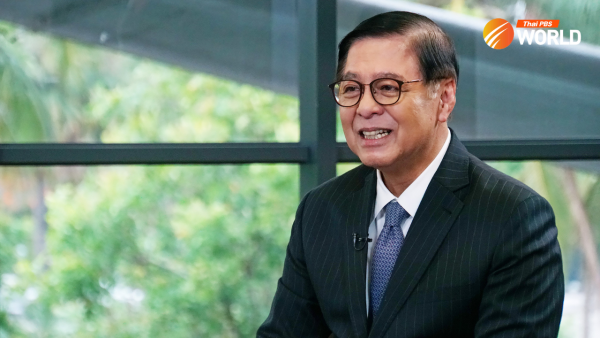Thailand ready for a new Constitution, but who will write it?

Thai politics is reaching another critical juncture this week when the first step toward reviewing the Constitution is taken after months of pressure from young anti-establishment protesters seeking changes to the supreme law drafted after the 2014 military coup.
Parliament is scheduled to meet on September 23-24 to discuss charter amendment motions to pave the way for a Constitution rewrite and to “switch off” the power of the 250 junta-appointed senators – if those seeking changes to the charter have their way.
So far, six motions for constitutional amendments have been submitted to Parliament by government and opposition parties.
Two motions proposed last month by government coalition parties and five opposition parties seek to amend Article 256 of the Constitution to pave the way for the setting up of a Constitution Drafting Assembly (CDA) to write a new charter.
Four more motions proposed last week by opposition parties, including Kao Klai (Move Forward), aim to reduce the power of military-appointed senators enshrined in Articles 270, 271 and 272, revoke Article 279 that legalises all National Council for Peace and Order (NCPO) orders even after a new government comes to power, and change the electoral system.
Among the motions, proposals to amend Article 256 that would lead to wider amendments and Article 272 to scrap senators’ power to vote for a prime minister are key demands.
Observers say a Constitution Drafting Assembly is likely to get the nod from parliamentarians, but curbing the Senate’s voting power will be more difficult. The article in question (272) enabled the pro-junta Palang Pracharath Party to form a coalition government despite coming second in the 2019 election, before having its sole prime ministerial candidate, coup-leader General Prayut Chan-o-cha, elected premier again with unanimous backing from the Senate.
Observers note that amending the Constitution requires the backing of one-third or 84 of the 250 senators, and it is unlikely that the senators would vote to terminate themselves.
Titipol Phakdeewanich, political science dean at Ubon Ratchathani University, dismissed the charter-amendment push as the government paying lip service to reform. Genuine change to the government would come with the amendment of Article 272, but it was unlikely this would be passed by Parliament, he added.
“The real intention [of the current charter] is to ensure the NCPO remains in power after the [post-coup] general election. So, they definitely will not sacrifice [the power of Senate],” Titipol said.
Yuthaporn Issarachai, a political scientist from Sukhothai Thammathirat Open University, believes amendment of Article 256 will pass, since both the government and opposition parties agree on the necessity of setting up a CDA. However, they will have to hammer out minor differences about its origin and drafting timeframe.
“But the other four motions will be difficult to pass,” he said.
However, rejecting the move to switch off the Senate’s power may add more fuel to the already heated youth-led anti-establishment movement. Wanwichit Boonprong, a political analyst from Rangsit University, said the government and the Senate will find it difficult to ignore protesters’ demands.
However, even if Parliament approves the motions, there would still be long process before a new charter could be finalised, he said.
The process is expected to take at least 10 to 15 months from when recruitment for the CDA begins.
Military influence
Though most experts expect a CDA will be set up, critics are concerned about the identity of the drafters and whether they will try to prolong the military’s political influence.
Even if a new charter is drafted, if all sides of society are not part of the rewriting, it will be no more democratic than its predecessor, Titipol says.
“Drafters of previous charters were handpicked by the military [coup-makers]. They were always old faces like Meechai [Ruchupan] and Bowornsak [Uwanno], so we fear getting the same kind of content in the [next] charter,” said the academic.
Instead, the drafting process should involve new faces or representatives of the people, he added.
Veteran legal experts Meechai and Bowornsak are familiar faces when it comes to writing the country’s supreme law. Bowornsak was appointed by the junta after 2014 coup to chair the Constitution Drafting Committee (CDC). But after his committee’s charter was rejected by the National Reform Council in 2015, the junta appointed Meechai head of a new CDC that drafted the country’s 20th Constitution.
Constitution Drafting Assemblies are usually established after military coups or as a way of solving serious political crises. The very first CDA resulted in the Constitution of BE2492 (1949).
The current 2017 charter, drafted by a 21-member CDC handpicked by the NCPO and chaired by Meechai, is criticised for “undemocratic” provisions that have lit the fuse on a timebomb of dangerous social divisions and mounting frustration. In contrast, the writers who designed the 1997 Constitution gained widespread respect. Their charter was praised for its inclusive drafting process, enshrining of human rights, and advances in political reform.
It emerged after the Banharn Silpa-Archa amended the 1991 Constitution to establish a CDA in 1996 following public demands for political reform.
The fruit of the 1996 CDA, chaired by former Parliament president Uthai Pimjaichon, was dubbed the “People’s Constitution” and marked the first time in Thai history that the drafting process was open to public participation nationwide through people’s representatives.
While writers of other charters were handpicked by the military, the 1997 Constitution’s 99-member CDA comprised 76 members directly elected from each province and 23 academics. Respected former prime minister Anand Panyarachun, a member of the CDA, was appointed as chairman of the drafting committee.
Nationwide public consultation also formed part of the drafting process in 1997. Over 840,000 people participated at public hearings, joined by more than 300 business associations, civil networks, pro-democracy organisations and political parties.
By Thai PBS World’s Political Desk






